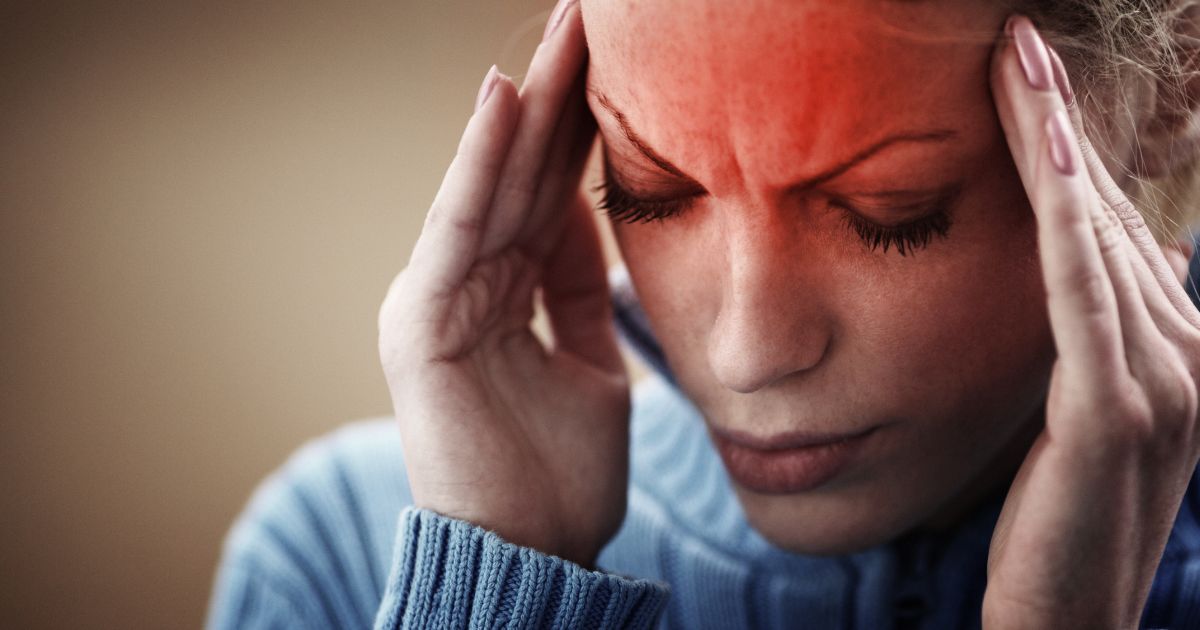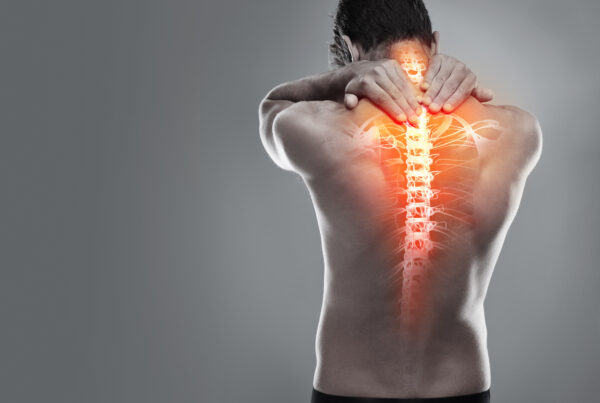Do you often suffer from migraines and tension headaches? You are not alone! This is a worldwide issue and they can cause various symptoms and make life difficult. An American Migraine Prevalence And Prevention (Ampp) Study showed that about 12% of adults in the United States suffer from migraines, 1% of them being chronic migraines.
Often, regular treatments involving medicines don’t always work well and can have side effects. This is where acupuncture might help! In this article, we’ll talk about what migraines and tension headaches are, why they happen, the signs they show, and how acupuncture could be a helpful option for those dealing with these issues.
Understanding Migraines:
Migraines are extreme headaches that happen over and over. They bring strong, throbbing pain, often on one side of the head, but they can hurt both sides too. Other things like feeling sick, throwing up, being sensitive to light and loud sounds, and seeing strange things can also come with migraines. These headaches can last for a long time and make you feel weak.
Why Migraines Happen:
We don’t know exactly why migraines happen, but it could be a mix of your genetic makeup (what you get from your family), the environment around you, and how your brain works. Some things that can start a migraine include:
- Hormone Changes: Women can get migraines when their hormone levels change, like during their periods, pregnancy, or menopause.
- Certain Foods: Some people might get migraines from eating things like aged cheese, processed meats, artificial sweeteners, caffeine, alcohol, or foods with MSG.
- Stress: Too much stress or sudden changes in stress can bring on migraines.
- Things That Affect Your Senses: Bright lights, loud noises, strong smells, and bright things you see can start migraines.
- Sleep Problems: Both not enough sleep and too much sleep can make you get migraines.
- Weather Changes: Quick changes in the weather or really bad weather can also trigger migraines.
- Brain Chemical Changes: Some changes in brain chemicals, like serotonin, dopamine, and norepinephrine, have something to do with migraines.
- Physical Stuff: Doing tough physical things like lifting heavy stuff or hard exercise can lead to migraines.
- Certain Health Problems: Some health issues like sinus problems, TMJ, or blood vessel problems can make you more likely to have migraines.
What Migraines Can Feel Like:
Not everyone has the same symptoms, but some things you might feel with a migraine include:
- Really Bad Headache: This headache can hurt a lot, and it often throbs or pounds. It might get worse if you move around too much.
- Sensitive to Light: Lights, even regular ones, can make your headache worse.
- Sensitive to Sound: Loud noises or certain sounds can make your headache worse.
- Feeling Sick: Lots of people with migraines feel sick and sometimes throw up.
- Seeing Weird Things: Before or during a migraine, some people see things that aren’t there, have trouble talking, or feel strange sensations in their face or limbs.
- Feeling Dizzy: You might feel off-balance, dizzy, or like everything is spinning.
- Tired and Weak: Migraines can make you feel really tired and weak.
- Neck Pain: Some people get neck pain or feel stiff during a migraine.
- Hard to Think: Migraines can make it tough to concentrate or think clearly.
- Eating Changes: Some people might not want to eat or eat more during a migraine.
- Brain Fog: Some people might feel confused or have trouble with their memory during or after a migraine.
- Irritable: Migraines can make you feel grumpy or change your mood.
- Slow or Fast Onset: Some people feel their migraine symptoms building up slowly over a few hours or days (gradual onset). Others might get a sudden and very painful headache without any warning (migraine aura or attack phase).
- Frequency: Some people get migraines only sometimes, while others get them a lot, from a few times a year to many times a month.

Understanding Tension Headaches:
Tension headaches are the most common kind of headache. They usually feel like a dull, achy pain that wraps around your head like a tight band. These headaches usually happen on both sides of your head and can be a constant, steady pain. They might come and go or happen a lot.
Why Tension Headaches Happen:
We’re not exactly sure why tension headaches happen, but they’re often linked to things like:
- Muscle Tension: Stress, either from your body or your emotions, can make the muscles in your head, neck, and shoulders tense up and give you a tension headache.
- Bad Posture: Sitting in a not-so-good way, especially when you’re at a desk or using electronic devices for a long time, can make tension headaches more likely.
- Eye Strain: Staring at screens or straining your eyes can trigger these headaches.
- Sleep Problems: Not getting enough good sleep can make tension headaches happen more.
- Stress and Worry: Feeling stressed can make your muscles tighten up and give you a headache.
- Too Much Caffeine: Having lots of caffeine, either from drinks like coffee and tea or from certain medicines, can lead to tension headaches.
- Not Drinking Enough Water: Not drinking enough water can cause headaches. Drinking too much alcohol can make this worse.
- Things in Your Environment: Some things like loud sounds, strong smells, or bright lights can give you a tension headache.
- Not Moving Enough: Not being active or sitting too much can make your muscles tense and give you tension headaches.
What Tension Headaches Feel Like:
Tension headaches might show up differently for different people, but here are some common signs:
- Mild to Moderate, Constant Pain: The pain feels like a tight or pressing feeling on both sides of your head, like a band squeezing your head.
- Where It Hurts: Usually, the pain is in your forehead, temples, or the back of your head and neck.
- On Both Sides: Tension headaches usually hurt on both sides of your head, but one side can be worse.
- No Throbbing: Unlike migraines, tension headaches usually don’t throb or pound.
- How Long They Last: Tension headaches can stick around for a few hours or even several days.
- Muscles Are Tender: The muscles in your neck, shoulders, and head can feel sore to touch and tight.
- Sensitive to Light or Sound: Some people with tension headaches might be a little sensitive to light and sound, but not as much as with migraines.
- No Nausea or Aura: Tension headaches usually don’t make you feel sick or come with a weird feeling before the headache starts.
- Slow Start: Tension headaches usually come on slowly over time, rather than hitting suddenly.
- How Often They Happen: Tension headaches can come and go or happen a lot.

How Acupuncture Could Help Migraines and Tension Headaches:
Acupuncture might help with tension headaches and migraines in a few ways:
- Less Pain: Acupuncture might make your body release natural painkillers called endorphins. This could help you have fewer and less painful headaches.
- Relaxing Muscles: Acupuncture might help your muscles relax, especially in your head, neck, and shoulders, which are common areas for tension headaches.
- Lower Stress: Stress is a big part of both migraines and tension headaches. Acupuncture might help lower your stress, making it less likely for headaches to happen.
- Better Blood Flow: Acupuncture might help your blood move better, which can bring more oxygen and nutrients to your brain. This might make headaches less common and less painful.
- Brain Chemicals: Acupuncture might change the levels of certain chemicals in your brain, like serotonin and dopamine, which have a role in how you feel pain and your mood.
- Less Inflammation: Some studies say that acupuncture might have anti-inflammatory effects, which could help with the swelling that happens with migraines and tension headaches.
- Hormone Balance: Acupuncture could help balance your hormones, which might lower your chances of having headaches linked to hormone problems.
- Better Sleep: People who get acupuncture might sleep better, which can help with headaches that come from sleep issues.
- Stronger Brain: Acupuncture could make your central nervous system, including your brain, work better. This could help with headaches.
- Less Often and Less Painful: People who get acupuncture often have fewer and less painful migraines and tension headaches, and it can even help stop them from happening.
- Personal Treatment: Acupuncture isn’t the same for everyone. It’s personalized to your specific symptoms and problems.
If you have migraines or tension headaches and think acupuncture could help you, contact Acupuncture of West Florida. Dr. Kim Windschauer has years of experience with acupuncture and has helped many people with their migraines and tension headaches. She makes custom treatment plans for each person to get the best results. If you want to talk to Dr. Kim about your headaches and a possible treatment plan, get in touch with the Acupuncture of West Florida. We want to help you live a life without pain!






